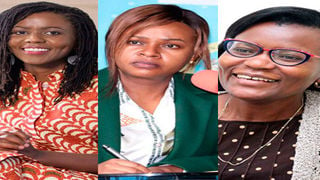
From left: Gen Robert Kibochi, Dr Rose Mutiso, Dr Mercy Mwangangi and Dr Loice Achieng Ombajo.
| File | Nation Media GroupNews
Premium
Here are the best and worst public communicators of 2021
2021 was the second year of the Covid-19 pandemic and some of the best communicators were medical practitioners whose excellent communication skills helped us navigate the turbulent year.
The year brought into focus the importance of communication at an individual and corporate level and our analysis included some organisations that played critical roles during the pandemic – some of which are going to be key in 2022 as the country enters its electoral season.
As usual, our list is certain to generate robust debate and it is our hope that readers will use the communication takeaways and examples to grow their own communication skills.
Best communicators 2021 was the second year of the Covid-19 pandemic and some of the best communicators were medical practitioners whose excellent communication skills helped us navigate the turbulent year.
The year brought into focus the importance of communication at an individual and corporate level and our analysis included some organisations that played critical roles during the pandemic – some of which are going to be key in 2022 as the country enters its electoral season.
As usual, our list is certain to generate robust debate and it is our hope that readers will use the communication takeaways and examples to grow their own communication skills.
Dr Loice Achieng Ombajo – Calm, knowledgeable, connecting
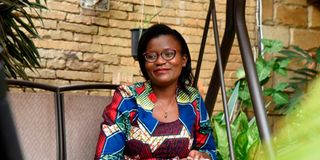
A physician and infectious disease specialist, Dr Ombajo stood out at the height of the Covid-19 pandemic. When little was known about the new disease, she became a regular face on TV speaking to a panicked populace as she provided insights on the transmission, management and prevention of the disease. Her ability to turn complex medical terms into easy to understand concepts enhanced her connection with audiences. Her conversational cadence and calm mien provided assurance. Even during animated prime time interviews, she remained unruffled. Dr Ombajo stands out as a professional who has mastered the art of deploying communication as a tool to advance critical messages in times of crisis.
Dr Rose Mutiso – Communicating research
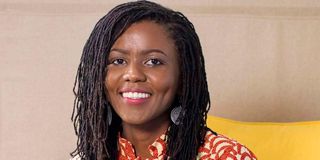
Dr Rose Mutiso
Dr Mutiso is not only an energy researcher and co-founder of the Mawazo Iinstitute, she is also a policy advocate on energy, innovation and the environment.
Her ability to deploy logical appeal based on her research and incorporate strategic emotional appeal for her policy persuasion agenda is quite masterful.
She has managed to escape from the “prison of technicality” that holds captive so many experts. She has been able to package and mainstream her technical knowledge into content for audiences lacking in her expertise.
It is no wonder that she has some TED talks to her name; masterfully delivered as well.
Justice Joel Ngugi – Law doesn’t have to be complicated
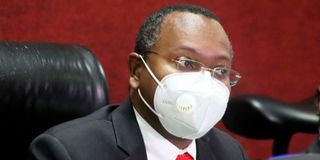
Justice Joel Ngugi delivers the judgment on eight consolidated petitions challenging the proposed BBI referendum at the High Court in Milimani, Nairobi, on May 13. Prof Ngugi led the five-judge bench that heard the case.
The “law is clear” is a cliché deployed by many legal practitioners right before they lurch into legal jargon understood by a very limited audience, and judges are no exception.
Prof Joel Ngugi is that rare judge who actually makes sure that the law is clear by communicating his mastery of it, articulately, calmly and with humble confidence.
The depth of his scholarship, understanding of the law and his delivery of rulings have been applauded by both winners and losers in his court.
This year, his informative and persuasive media interview on Alternative justice systems was a masterclass on why the “law doesn’t have to be complicated.”
Gen Robert Kibochi – Authoritative communication

The Kenya Defence Forces (KDF) Chief of Defence Forces General Robert Kibochi at the Kahawa Barracks on March 11, 2021 during the launch of the Covid-19 vaccination drive to the members of the Kenya Defence Forces.
At a time when the Kenya Defence Forces (KDF) has assumed a greater role and visibility in public life, running several institutions such as the Nairobi Metropolitan Service, strategic communication has assumed a greater role in the military.
Besides having a vibrant public affairs department and an active social media presence, KDF has launched the Strategic Communication Centre in recognition of the role information and communication plays in modern warfare.
At the helm of this renewed communication is Gen Kibochi. He communicates with the confidence and authority that his office bestows. He comes across as clear minded, reflective and deliberate. His unique communication abilities will prove useful in the increasing civil-military engagement.
Dr Mercy Mwangangi – Graceful under pressure
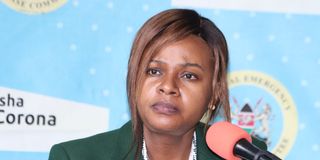
Chief Administrative Secretary (CAS) in the Ministry of Health Dr Mercy Mwangangi giving updates on the status of Covid-19 in the Country.
In the midst of the Covid-19 pandemic, the daily briefings by the Health Cabinet Secretary had become predictable and audiences were no longer actively engaging.
The Health Chief Administrative Secretary’s eloquent, measured presentations were refreshing to a public that was pandemic weary.
Dr Mwangangi’s strength lay in her ability to effortlessly communicate science and policy in her twin role as a health professional and policymaker in the Ministry of Health. Her calm presence, combined with the candour and thoughtfulness with which she handled questions from journalists, certainly helped to educate and allay public fear about the disease.
Dr Gitahi Githinji – Simplifying the complex

Throughout the Covid - 19 pandemic, when facts, science and truth have mattered most, Dr Githinji has been a constant face and voice on TV and Twitter, providing deep insights to help Kenyans navigate the pandemic. The articulate doctor has taken on the role of a public intellectual, expertly simplifying the science and making it interesting for ordinary folk.
His TV appearances have been a welcome break from the usual political diatribe as he educates people on various public health issues like vaccines and healthy lifestyles.
Dr Githinji effectively uses social media, especially his Twitter handle @Daktari1 to educate the public and advocate public health issues.
Kwame Owino – Economics for all
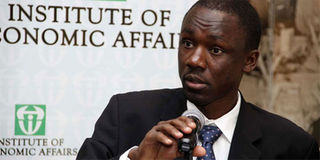
Institute of Economic Affairs CEO Kwame Owino at a past event.
He is an economist who has managed to introduce economic theories and practice to a mainstream audience in a language they can comprehend.
By effectively using communication techniques like storytelling and imagery, his economic explanations come to life.
Human beings can get intimidated when presented with huge numbers and the challenge for communicators lies in humanising these numbers and presenting them in chunks that are easy to understand and process; a skill Mr Owino has mastered.
His audience analysis skills are well honed, and his passionate speaking technique and good listening skills make him a favourite of public debate forums.
Khalid Hussein – Authentic advocacy
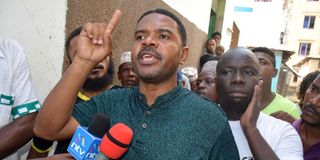
Mr Hussein possesses authenticity – when he communicates, he does come across as genuinely concerned about the causes and people he advocates for.
The human rights crusader has continued to grow in his ability to not only frame perspectives through the legal prism but to also present his causes as social and political concerns that affect society, not just the victims. His ability to infuse human rights issues in other topics affirms his standing as a good communicator and defender of human rights.
Whenever he has appeared to talk about human rights abuse, his transparent, compassionate and authentic manner has ensured he connects with audiences listening or watching him.
Waihiga Mwaura– Integrity, competency exemplified
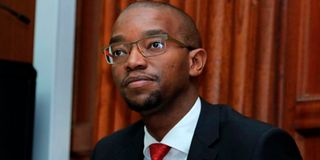
Journalist Waihiga Mwaura.
The award winning journalist has a conversational, likeable manner. When he conducts interviews, he has the ability to balance depth, fairness, firmness and respect for his interviewees and audience.
He made the headlines when he became the subject of the news himself during the Rio Olympic scandal trial. His testimony in court was crucial in the eventual conviction of Sports ministry and National Olympics Committee of Kenya officials. Mr Waihiga’s credibility was greatly enhanced by his ethical conduct.
Integrity combined with competence communicates and connects with audiences; and it certainly helps when these qualities come from a newsman.
Suzanne Silantoi – Graceful, sincere communication

Suzanne Silantoi Lengewa.
Ms Silantoi’s ability to communicate public policy in a reflective, relaxed conversational manner won over many viewers to her podcasts and ensured she was also invited on various media platforms to present her perspectives.
A core aspect that connects audiences with communicators is the ability to project goodwill by showing that one has the audience’s best interests at heart, and Ms Silantoi managed to do this so well, coming across as the “public’s teacher” on policy issues. Her systematic communication style proved to be an asset and she seems to have also mastered the optics and staging for good presentations.
Worst communicators
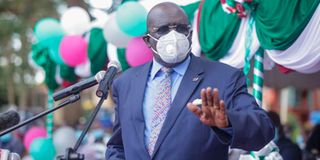
Education Cabinet Secretary George Magoha addressing Maseno School students on December 18, 2021.
Prof George Magoha – Lacking in connection
He is known for his brash no-nonsense approach to issues. In cartoons, he is often depicted as an angry charging bull to symbolize his penchant for taking on issues and people head on. This is reflected in his communication approach, which is often combative. Unfortunately, this kind of communication is rarely effective. The CS would be better served by taking a more persuasive and consultative approach.
Nick Mwendwa – Not ready for the game
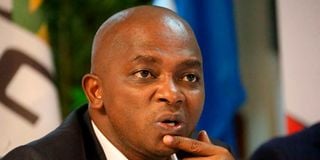
Former Football Kenya Federation president Nick Mwendwa.
It has been argued that the greatest injustice you can do to the Kenya Football Federation boss is to thrust a microphone in his face. His high-pitched voice, combined with an arrogant and reckless delivery has seen him misspeak, especially when riled up.
He seemed to lack a strategy for his press interviews, which eventually alienated him from crucial allies and led to the loss of confidence by key football stakeholders. His explanation that Harambee Stars were losing due to lack of talent in the country, is a case in point
John Njuguna – Unprepared, incoherent communication

Kiambaa MP John Njuguna.
His branding as the common person’s representative seemed to resonate with the people of Kiambaa Constituency who then elected him. Many expected him to use the parliamentary platform to articulate his agenda and what his election stood for.
He went ahead to deliver a poorly crafted, barely coherent and ill-delivered speech. His poor delivery transformed him into a bumbling caricature thereby diminishing his credibility.
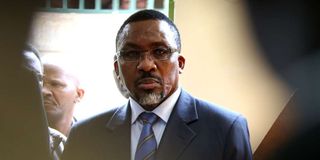
Pastor James Ng'ang'a of Neno Evangelism Centre.
James Nga’ng’a – Vulgar, inappropriate content
Vulgar content in his sermons got Pastor Nga’ng’a banned from broadcasting for six months by the Communications Authority.
While we are constitutionally guaranteed freedoms of expression, the Media Council spells out clear guidelines on what is appropriate mass broadcast content. As a society we must ensure that the content broadcast on mass media does not infringe on other’s rights, especially when they do not have a similar platform to defend themselves.
Hopefully, in six months’ time, Pastor Nga’ng’a will have “cleaned” up his sermons.
Wafula Chebukati – Uninspiring
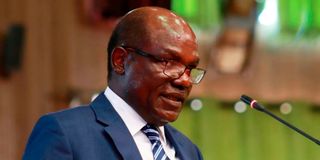
Wafula Chebukati, the chairman of the Independent Electoral and Boundaries Commission.
Communication is not just about spoken words,it also involves our non-verbal cues. The IEBC chairperson has been in office for more than five years but does not seem to have grown his communication skills.
In many instances, he was uninspiring, devoid of passion, spoke in a monotone and his non-verbal cues did not complement the message. He lacked the leadership communication skills of confidence, clarity, likeability and believability.
As one of the most important persons in 2022, he must communicate with great skill to inspire confidence in the elections.
Judicial Service Commission – Working a ‘bubble’
While the JSC ia a traditionally insular institution, it handles matters of high importance for the public.
For the public to have confidence in the Judiciary, the institution must be undergirded by the ideals of integrity, fairness and ethical conduct. These ideals were tested and found wanting whenever the public complained about some judicial officers. While the JSC might have internally invoked its processes to deal with such complaints, it failed to inspire confidence in the public by not communicating the same.
The JSC must become more transparent with the public. Only by demonstrating that the administrative and operational processes it has in place to deal with complaints against judicial officers work will public confidence in the justice system be enhanced.
National Police Service – Uninspiring communication
The National Police Service (NPS) struggled to communicate its enforcement role effectively during the pandemic. Its initial communication efforts were based on threats and characterised by the abuse of fundamental rights while completely failing to express a more compassionate security model. The result was a rise in public resentment.
As the country heads to the elections, the NPS has to ensure it communicates effectively. The messages it sends to the public should focus on competency in executing their electoral security mandate, non-partisanship and fidelity to the law. The service must strive to build trust with citizens by communicating concrete administrative and operational aspects that respect and uphold the rights of citizens.
Growing pool of public intellectuals – Diminishing credibility
The expansion of media has introduced Kenyans to a new category of analysts and experts branded as “public intellectuals”. In their media appearances some have proffered opinions outside their expertise, presenting them as absolute truths and not opinions. Some of these opinions have at times been challenged by the real experts.
When challenged on their assertions, even when they are clearly out of their depth, they have resorted to “educationism” (discrimination against those they perceive to be less educated).
In 2022, the media and conveners of public forums would do well to hold to account these experts by inviting and offering platforms for their peers to fact check and review their assertions.
Independent Electoral and Boundaries Commission – Disjointed communication
The IEBC umpired a number of by-elections in 2021, which revealed that the commission has not learned any lessons from the past. It engaged in reactive as opposed to reactive communication.
The IEBC has failed to vividly explain the entire electoral process (especially on the contentious dimensions) and what it has learnt from history. Its approach has mainly been tactical, but it has failed to connect these efforts with the bigger picture to ensure its credibility is beyond reproach.
By Paul Achar, executive communication coach and applied human communication practitioner at Jade Communications, and Dr Sam Kamau, a communications scholar and lecturer at Aga Khan University.





